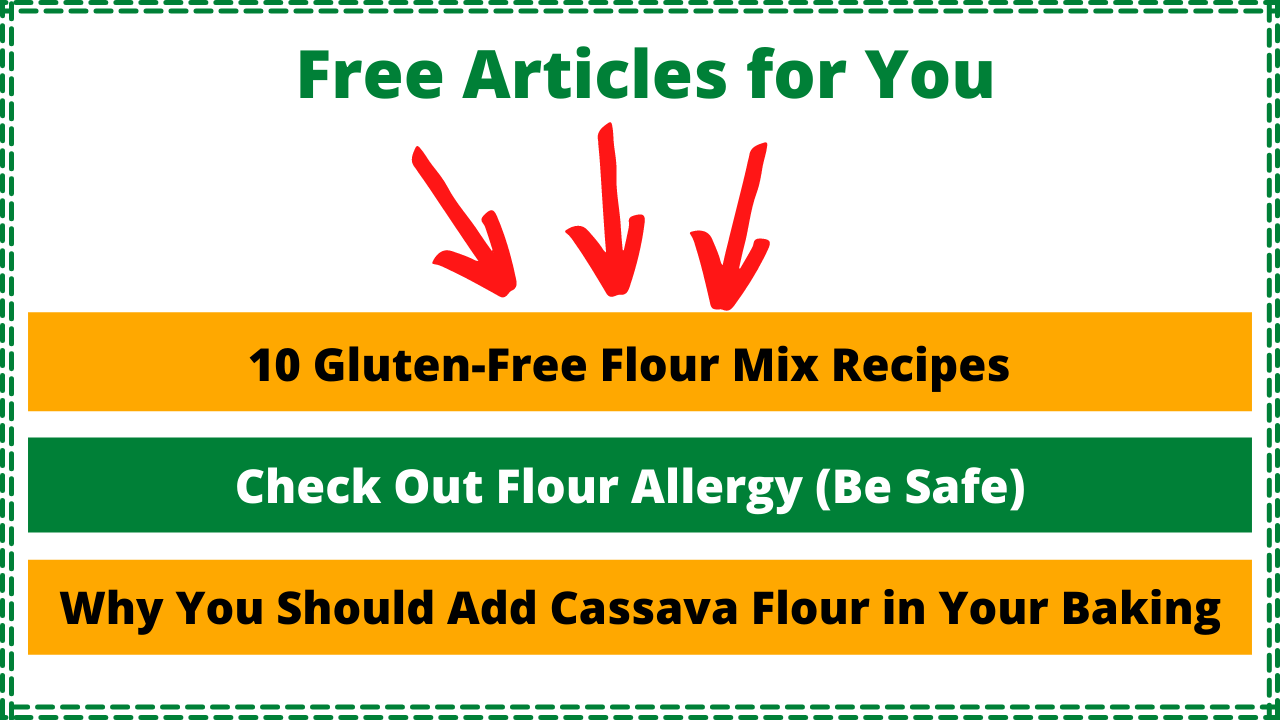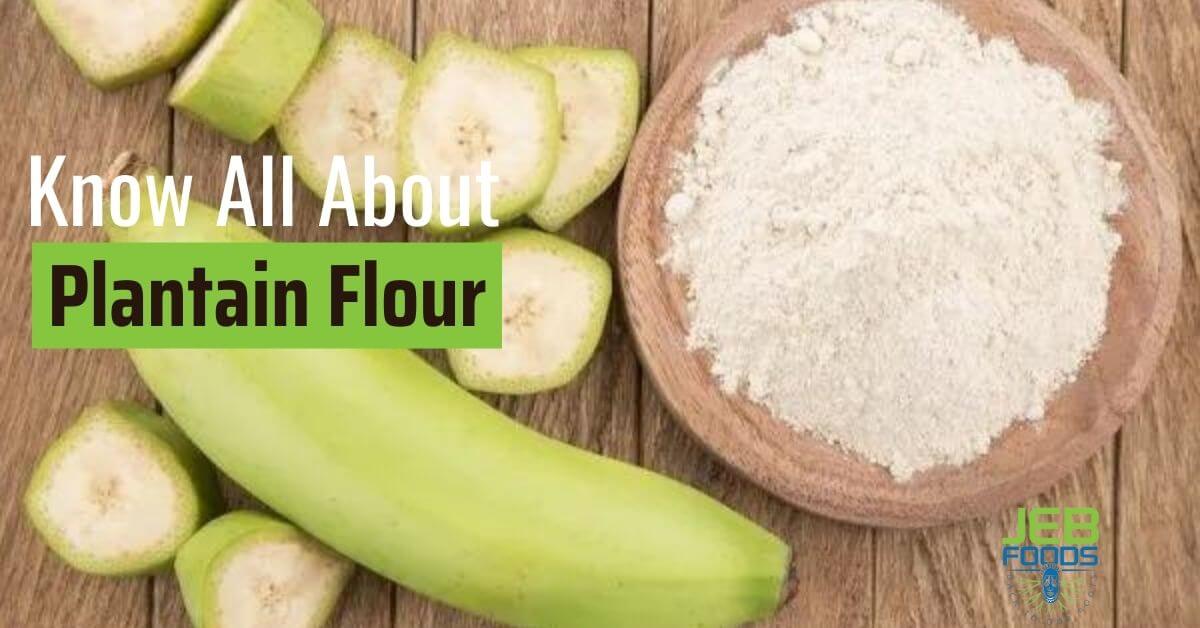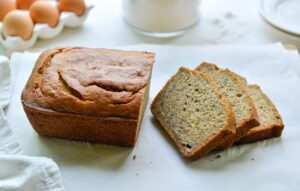This is a complete guide to gluten, and I will explain how good or harmful gluten is, especially in baking.
I have been baking on a large scale for over 8years, and I can say that gluten is not what you want to consume. Let me explain why.
Gluten is not a dangerous substance on its own. The vast majority of people well tolerate gluten.
The issue arises as an autoimmune disorder where the body incorrectly identifies gluten as a foreign substance and launches a systemic attack against it.
Celiac disease, for example, is an autoimmune disorder in which the body misidentifies gluten as a foreign invader and attacks it.
Find out if gluten-free flours help against diabetes
However, healthy cells lining the small intestine walls are damaged during the process, impairing the body’s ability to absorb nutrients from food.
Eliminating gluten from your diet may necessitate a complete diet overhaul. At first, this may appear to be a bit overwhelming.
But don’t worry, I am here to help! Please read our complete gluten guide here to get a basic understanding of what gluten is and how to cope with it.
What Is Gluten
Table of Contents
ToggleGluten is a protein family found in wheat, barley, and rye. Glutenin and gliadin are two main proteins found in these grains, and they contribute to the elasticity and sponginess of gluten-containing foods like dough and bread.
Wheat berries, farina, durum, emmer, spelt, semolina, farro, graham, Khorasan wheat, einkorn, and triticale are also gluten-containing grains (a blend of wheat and rye).
Is Gluten Bad
Gluten is neither healthful nor harmful (unless you have celiac disease).
It is a protein, but it is present in such minute amounts in meals that it does not deliver protein in the same way that an egg or a piece of chicken does.
This kind of protein present in some cereals. It is dangerous to persons who have certain conditions when they consume it.
People with celiac disease, gluten sensitivity, or the skin ailment dermatitis herpetiformis should follow a gluten-free diet.
Some persons with irritable bowel syndrome, the neurological condition gluten ataxia, type 1 diabetes, and HIV-associated enteropathy may benefit from a gluten-free diet.
Gluten is a protein found usually in wheat, barley, and rye. To avoid significant intestinal inflammation, 2% of the population diagnosed with celiac disease must follow a gluten-free diet.
Some people have a less severe condition known as non-celiac gluten sensitivity, and they may feel better on a gluten-free diet.
Here is the number one reason you should be baking with a gluten-free flour
Are There Healthy Forms Of Gluten
Despite being naturally gluten-free, Oats frequently contain gluten due to cross-contamination when grown near or processed in the same facilities as grains with gluten.
Gluten is also called as seitan, a popular vegan high-protein food, Which I think is the healthiest form of gluten protein.
Soy sauce and modified food starch are less obvious gluten sources. Still, gluten-free versions of these products are available and labeled as such to comply with the U.S. Food and Drug Administration’s gluten-free labeling rule.
Here are the significant tips for baking with the gluten-free flour
What Is The Recommended Quantity Of Gluten
People diagnosed with celiac disease frequently ask their doctors how much gluten they can eat.
Unfortunately, I cannot give a simple answer to this question, nor is there a one-size-fits-all strategy that works for everyone. In the end, it’s not so much about how much gluten you can eat as it is about how little it takes to harm you.
Gluten intolerance varies from person to person. On one end of the spectrum, people with celiac disease can eat almost anything and not get sick.
On the other end, others are susceptible to eating becoming a chore rather than a pleasure. Trying to figure out what’s best for you can be a trial and error process.
While it may take time for you or your healthcare provider to find the ideal threshold, your ability to avoid symptoms can help you avoid many of the disease’s long-term complications, such as bone loss, gallbladder problems, and pancreatic insufficiency.
So try to focus on what you stand to gain rather than what you stand to lose. With perseverance and diligence, you’ll eventually discover a diet that allows you to enjoy both improved health and a better quality of life.

What Are The Advantages Of Gluten
Many Americans have tried a gluten-free diet at this point, not because they have celiac disease or sensitivity, but because it seems almost un-American to allow gluten-containing items into your body.
Inflammation, brain fog, bloating, and even heart disease are all concerns associated with gluten, which is widely misrepresented in the media.
Despite the fact that gluten has no direct nutritional value, here are some of its benefits.
Reduced Risk Of Hazardous Heavy Metal Exposure.
Rice and fish are popular gluten-free diets, however they can contain hazardous heavy metals such as arsenic, mercury, cadmium, and lead.
Researchers on this guide to gluten analyzed blood samples from 11,353 participants in a single trial, 55 of whom had celiac disease.
They discovered that persons who followed a gluten-free diet had greater blood levels of mercury, lead, and cadmium than those who did not.
Following a GFD, people with and without celiac disease had an elevated burden of harmful heavy metals.
Reduced Risk Of Cardiovascular Disease.
Over 100,000 participants were studied by the Harvard School of Public Health over a 25-year period, with data on food histories collected on a regular basis.
Over 6,000 additional instances of coronary heart disease were discovered throughout the follow-up period.
Participants with the greatest gluten consumption had a considerably reduced incidence of heart disease than those with the lowest gluten intake.
Gluten consumption was related with a 15% decreased risk of developing coronary heart disease after adjusting for refined grain consumption.
“The promotion of a GFD for the goal of coronary heart disease prevention in asymptomatic patients without celiac disease should not be suggested,” the researchers on the guide to gluten concluded.
Colorectal Cancer Risk Is Reduced.
The World Health Organization warned in October 2015 that processed red meats pose a health risk, such as bacon, were not only connected with cancer, but were also directly tied with cancer as a Class 1 carcinogen.
These findings were confirmed in a revised analysis. The study also revealed how whole grains (which include the gluten family of compounds) lessen the incidence of colon cancer.
In fact, each 90-gram increase in whole grain consumption reduced the incidence of colorectal cancer by 17%. We’ve known for a long time that high-fiber diets help prevent illness, and whole grains are an excellent source of fiber.
Helps Avoid Excess Calories
An comparison of the nutritional content of gluten-free foods vs gluten-containing foods indicated that gluten-free foods contained considerably more calories, protein, saturated fatty acids, and often sugar.
Over 600 goods were tested, and this gap was most noticeable in breads, pizzas, and flours.
Reduced Chance Of Developing Type 2 Diabetes.
In March 2017, scientists presented data from 199,794 participants whose food histories had been tracked for over 30 years at the American Heart Association.
According to the presentation, the participants who consumed the most gluten had the lowest chance of developing type 2 diabetes after a year of follow-up.
Believe it or not, the group that ate the most gluten-containing items had a 13% reduced risk of diabetes than the group that ate the least.
Pizza, muffins, pretzels, and bread were the most common gluten sources.
What Are The Disadvantages Of Gluten
- Gluten Intolerance and Celiac Disease
While going gluten-free can benefit those with gluten intolerance and celiac disease, it is vital to understand the distinction between the two.
Celiac disease is an autoimmune disorder preventing people from processing and digesting gluten properly. Gluten can cause severe health problems because it causes your immune system to fight the small intestine.
Hence, trace amounts of gluten can cause significant damage, and repeated attacks cause the small intestine to lose its ability to absorb vital nutrients like calcium and iron.
Untreated celiac disease can lead to severe nutritional deficiencies such as osteoporosis and iron deficiency anemia and other autoimmune disorders, extreme fatigue, infertility, and neurological issues.
- Gluten intolerance is not an autoimmune disorder. It’s similar to lactose intolerance when you lose the ability to process or metabolize lactose (except gluten isn’t metabolized).
- Gluten sensitivity is characterized by gastrointestinal distress when you eat gluten. Those who have celiac disease, on the other hand, may experience some of the same symptoms or none at all.
- Gluten and Inflammation
If you suffer from pain and inflammation, avoiding gluten may be the best option.

Does Gluten Make You Fat
If you don’t have gluten allergies, gluten protein won’t make you fat, but gluten will make you fat for gluten-sensitive people.
Gluten intolerance occurs when your body has difficulty absorbing the protein gluten found in wheat, barley, and rye.
When you continue eating these foods, you may experience various digestive issues, resulting in bloating and weight gain. Gluten intolerance can result in symptoms such as gas, cramping, bloating, diarrhea, and constipation.
If I Am Healthy, Should I Still Abstain From Gluten
If you do not have celiac disease and can eat gluten without difficulty, there is no evidence that a gluten-free diet may improve your health or prevent disease. Future research on the guide to gluten could, of course, change this.
Aside from that, there is little evidence that a gluten-free diet provides any specific health benefits.
However, depending on which gluten-free foods you choose, how often you eat them, and whether your other food choices are healthy, It can still be a healthy way to eat.
What Are The Signs Of Gluten Intolerance
With gluten sensitivity, avoiding gluten does not appear to be as crucial for long-term health – it seems to be more of a matter of choice to prevent symptoms.
Gluten intolerance or sensitivity can cause a variety of symptoms. The following are the 18 most common signs and symptoms of gluten intolerance.
- Bone Ache
- Joint Pain Muscle Pain
- Depression
- Abdominal Bloating and Pain
- Diarrhea
- Constipation
- Weight gain
- GERD (Gastric Reflux Disease) (gastroesophageal reflux)
- Nausea
- Fatigue
- Dermatitis/rashes on the skin
- foul-smelling feces
- Headaches
- Unexplained Loss of Weight
- Anxiety
- Autoimmune Diseases
- Numbness in the legs or arms
- Head Fog
What Are Other Health Challenges Related To Gluten
Gliadin is a protein found in wheat that can cause an autoimmune reaction in some people. The body begins to attack its organs linked to celiac disease, arthritis, and fibromyalgia.
According to studies, removing gluten from a fibromyalgia patient’s diet reduced joint and muscle pain and improved gastrointestinal and neurological symptoms.
Asides from this, it is linked to five major illnesses:
- celiac disease
- non-celiac gluten sensitivity
- wheat allergy
- gluten ataxia
- dermatitis herpetiformis.
Each is distinct, but they are all connected and manageable.
Final Thought
This guide to gluten In all honesty there is no specific advantage of gluten; it does not contain any essential nutrients.
It is a protein, but it is present in such small amounts in foods that it does not provide protein in the same form as an egg or a piece of chicken.
We are in an era of increased gluten awareness. Is this a positive development? If you have celiac disease, it is.
Find out if cassava flour can make you sick
I believe it is a significant advancement that people who genuinely need to avoid gluten can now do so more quickly than in the past, as more gluten-free foods are now available.
Labels are more clearly indicating food with or without gluten. However, the “dangers” of gluten have most likely been exaggerated — and oversold.
Don’t let an elite athlete or movie star persuade you to restrict your diet when there’s no medical reason to. It is up to you and your doctor to take care of your health, not a celebrity or a book author.
Let me recommend for you Jeb Foods Gluten-free, Grain-free, Nut-free Cassava Flour




